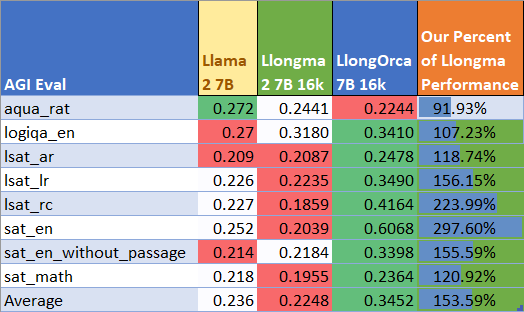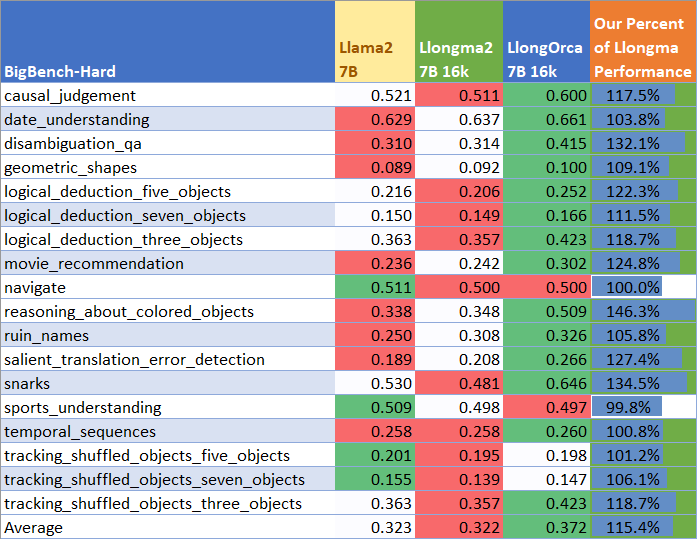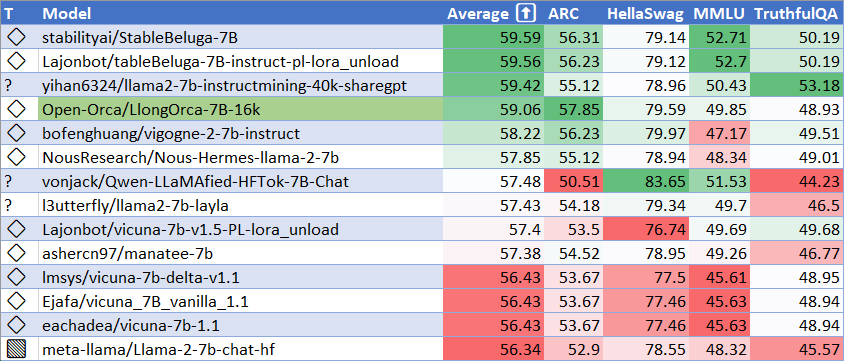<!-- header start --> <!-- 200823 --> <div style="width: auto; margin-left: auto; margin-right: auto"> <img src="https://i.imgur.com/EBdldam.jpg" alt="TheBlokeAI" style="width: 100%; min-width: 400px; display: block; margin: auto;"> </div> <div style="display: flex; justify-content: space-between; width: 100%;"> <div style="display: flex; flex-direction: column; align-items: flex-start;"> <p style="margin-top: 0.5em; margin-bottom: 0em;"><a href="https://discord.gg/theblokeai">Chat & support: TheBloke's Discord server</a></p> </div> <div style="display: flex; flex-direction: column; align-items: flex-end;"> <p style="margin-top: 0.5em; margin-bottom: 0em;"><a href="https://www.patreon.com/TheBlokeAI">Want to contribute? TheBloke's Patreon page</a></p> </div> </div> <div style="text-align:center; margin-top: 0em; margin-bottom: 0em"><p style="margin-top: 0.25em; margin-bottom: 0em;">TheBloke's LLM work is generously supported by a grant from <a href="https://a16z.com">andreessen horowitz (a16z)</a></p></div> <hr style="margin-top: 1.0em; margin-bottom: 1.0em;"> <!-- header end -->
LlongOrca 7B 16K - GPTQ
- Model creator: Open-Orca
- Original model: LlongOrca 7B 16K
<!-- description start -->
Description
This repo contains GPTQ model files for Open-Orca's LlongOrca 7B 16K.
Multiple GPTQ parameter permutations are provided; see Provided Files below for details of the options provided, their parameters, and the software used to create them.
<!-- description end --> <!-- repositories-available start -->
Repositories available
- AWQ model(s) for GPU inference.
- GPTQ models for GPU inference, with multiple quantisation parameter options.
- 2, 3, 4, 5, 6 and 8-bit GGUF models for CPU+GPU inference
- Open-Orca's original unquantised fp16 model in pytorch format, for GPU inference and for further conversions <!-- repositories-available end -->
<!-- prompt-template start -->
Prompt template: ChatML
<|im_start|>system
{system_message}<|im_end|>
<|im_start|>user
{prompt}<|im_end|>
<|im_start|>assistant
<!-- prompt-template end -->
<!-- README_GPTQ.md-provided-files start -->
Provided files and GPTQ parameters
Multiple quantisation parameters are provided, to allow you to choose the best one for your hardware and requirements.
Each separate quant is in a different branch. See below for instructions on fetching from different branches.
All recent GPTQ files are made with AutoGPTQ, and all files in non-main branches are made with AutoGPTQ. Files in the main branch which were uploaded before August 2023 were made with GPTQ-for-LLaMa.
<details> <summary>Explanation of GPTQ parameters</summary>
- Bits: The bit size of the quantised model.
- GS: GPTQ group size. Higher numbers use less VRAM, but have lower quantisation accuracy. "None" is the lowest possible value.
- Act Order: True or False. Also known as
desc_act. True results in better quantisation accuracy. Some GPTQ clients have had issues with models that use Act Order plus Group Size, but this is generally resolved now. - Damp %: A GPTQ parameter that affects how samples are processed for quantisation. 0.01 is default, but 0.1 results in slightly better accuracy.
- GPTQ dataset: The dataset used for quantisation. Using a dataset more appropriate to the model's training can improve quantisation accuracy. Note that the GPTQ dataset is not the same as the dataset used to train the model - please refer to the original model repo for details of the training dataset(s).
- Sequence Length: The length of the dataset sequences used for quantisation. Ideally this is the same as the model sequence length. For some very long sequence models (16+K), a lower sequence length may have to be used. Note that a lower sequence length does not limit the sequence length of the quantised model. It only impacts the quantisation accuracy on longer inference sequences.
- ExLlama Compatibility: Whether this file can be loaded with ExLlama, which currently only supports Llama models in 4-bit.
</details>
| Branch | Bits | GS | Act Order | Damp % | GPTQ Dataset | Seq Len | Size | ExLlama | Desc |
|---|---|---|---|---|---|---|---|---|---|
| main | 4 | 128 | No | 0.1 | wikitext | 8192 | 3.90 GB | Yes | 4-bit, without Act Order and group size 128g. |
| gptq-4bit-32g-actorder_True | 4 | 32 | Yes | 0.1 | wikitext | 8192 | 4.28 GB | Yes | 4-bit, with Act Order and group size 32g. Gives highest possible inference quality, with maximum VRAM usage. |
| gptq-4bit-64g-actorder_True | 4 | 64 | Yes | 0.1 | wikitext | 8192 | 4.02 GB | Yes | 4-bit, with Act Order and group size 64g. Uses less VRAM than 32g, but with slightly lower accuracy. |
| gptq-4bit-128g-actorder_True | 4 | 128 | Yes | 0.1 | wikitext | 8192 | 3.90 GB | Yes | 4-bit, with Act Order and group size 128g. Uses even less VRAM than 64g, but with slightly lower accuracy. |
| gptq-8bit--1g-actorder_True | 8 | None | Yes | 0.1 | wikitext | 8192 | 7.01 GB | No | 8-bit, with Act Order. No group size, to lower VRAM requirements. |
| gptq-8bit-128g-actorder_True | 8 | 128 | Yes | 0.1 | wikitext | 8192 | 7.16 GB | No | 8-bit, with group size 128g for higher inference quality and with Act Order for even higher accuracy. |
<!-- README_GPTQ.md-provided-files end -->
<!-- README_GPTQ.md-download-from-branches start -->
How to download from branches
- In text-generation-webui, you can add
:branchto the end of the download name, egTheBloke/LlongOrca-7B-16K-GPTQ:main - With Git, you can clone a branch with:
git clone --single-branch --branch main https://huggingface.co/TheBloke/LlongOrca-7B-16K-GPTQ
- In Python Transformers code, the branch is the
revisionparameter; see below. <!-- README_GPTQ.md-download-from-branches end --> <!-- README_GPTQ.md-text-generation-webui start -->
How to easily download and use this model in text-generation-webui.
Please make sure you're using the latest version of text-generation-webui.
It is strongly recommended to use the text-generation-webui one-click-installers unless you're sure you know how to make a manual install.
- Click the Model tab.
- Under Download custom model or LoRA, enter
TheBloke/LlongOrca-7B-16K-GPTQ.
- To download from a specific branch, enter for example
TheBloke/LlongOrca-7B-16K-GPTQ:main - see Provided Files above for the list of branches for each option.
- Click Download.
- The model will start downloading. Once it's finished it will say "Done".
- In the top left, click the refresh icon next to Model.
- In the Model dropdown, choose the model you just downloaded:
LlongOrca-7B-16K-GPTQ - The model will automatically load, and is now ready for use!
- If you want any custom settings, set them and then click Save settings for this model followed by Reload the Model in the top right.
- Note that you do not need to and should not set manual GPTQ parameters any more. These are set automatically from the file
quantize_config.json.
- Once you're ready, click the Text Generation tab and enter a prompt to get started! <!-- README_GPTQ.md-text-generation-webui end -->
<!-- README_GPTQ.md-use-from-python start -->
How to use this GPTQ model from Python code
Install the necessary packages
Requires: Transformers 4.32.0 or later, Optimum 1.12.0 or later, and AutoGPTQ 0.4.2 or later.
pip3 install transformers>=4.32.0 optimum>=1.12.0
pip3 install auto-gptq --extra-index-url https://huggingface.github.io/autogptq-index/whl/cu118/ # Use cu117 if on CUDA 11.7
If you have problems installing AutoGPTQ using the pre-built wheels, install it from source instead:
pip3 uninstall -y auto-gptq
git clone https://github.com/PanQiWei/AutoGPTQ
cd AutoGPTQ
pip3 install .
For CodeLlama models only: you must use Transformers 4.33.0 or later.
If 4.33.0 is not yet released when you read this, you will need to install Transformers from source:
pip3 uninstall -y transformers
pip3 install git+https://github.com/huggingface/transformers.git
You can then use the following code
from transformers import AutoModelForCausalLM, AutoTokenizer, pipeline
model_name_or_path = "TheBloke/LlongOrca-7B-16K-GPTQ"
# To use a different branch, change revision
# For example: revision="main"
model = AutoModelForCausalLM.from_pretrained(model_name_or_path,
device_map="auto",
trust_remote_code=False,
revision="main")
tokenizer = AutoTokenizer.from_pretrained(model_name_or_path, use_fast=True)
prompt = "Tell me about AI"
prompt_template=f'''<|im_start|>system
{system_message}<|im_end|>
<|im_start|>user
{prompt}<|im_end|>
<|im_start|>assistant
'''
print("\n\n*** Generate:")
input_ids = tokenizer(prompt_template, return_tensors='pt').input_ids.cuda()
output = model.generate(inputs=input_ids, temperature=0.7, do_sample=True, top_p=0.95, top_k=40, max_new_tokens=512)
print(tokenizer.decode(output[0]))
# Inference can also be done using transformers' pipeline
print("*** Pipeline:")
pipe = pipeline(
"text-generation",
model=model,
tokenizer=tokenizer,
max_new_tokens=512,
do_sample=True,
temperature=0.7,
top_p=0.95,
top_k=40,
repetition_penalty=1.1
)
print(pipe(prompt_template)[0]['generated_text'])
<!-- README_GPTQ.md-use-from-python end -->
<!-- README_GPTQ.md-compatibility start -->
Compatibility
The files provided are tested to work with AutoGPTQ, both via Transformers and using AutoGPTQ directly. They should also work with Occ4m's GPTQ-for-LLaMa fork.
ExLlama is compatible with Llama models in 4-bit. Please see the Provided Files table above for per-file compatibility.
Huggingface Text Generation Inference (TGI) is compatible with all GPTQ models. <!-- README_GPTQ.md-compatibility end -->
<!-- footer start --> <!-- 200823 -->
Discord
For further support, and discussions on these models and AI in general, join us at:
Thanks, and how to contribute
Thanks to the chirper.ai team!
Thanks to Clay from gpus.llm-utils.org!
I've had a lot of people ask if they can contribute. I enjoy providing models and helping people, and would love to be able to spend even more time doing it, as well as expanding into new projects like fine tuning/training.
If you're able and willing to contribute it will be most gratefully received and will help me to keep providing more models, and to start work on new AI projects.
Donaters will get priority support on any and all AI/LLM/model questions and requests, access to a private Discord room, plus other benefits.
- Patreon: https://patreon.com/TheBlokeAI
- Ko-Fi: https://ko-fi.com/TheBlokeAI
Special thanks to: Aemon Algiz.
Patreon special mentions: Alicia Loh, Stephen Murray, K, Ajan Kanaga, RoA, Magnesian, Deo Leter, Olakabola, Eugene Pentland, zynix, Deep Realms, Raymond Fosdick, Elijah Stavena, Iucharbius, Erik Bjäreholt, Luis Javier Navarrete Lozano, Nicholas, theTransient, John Detwiler, alfie_i, knownsqashed, Mano Prime, Willem Michiel, Enrico Ros, LangChain4j, OG, Michael Dempsey, Pierre Kircher, Pedro Madruga, James Bentley, Thomas Belote, Luke @flexchar, Leonard Tan, Johann-Peter Hartmann, Illia Dulskyi, Fen Risland, Chadd, S_X, Jeff Scroggin, Ken Nordquist, Sean Connelly, Artur Olbinski, Swaroop Kallakuri, Jack West, Ai Maven, David Ziegler, Russ Johnson, transmissions 11, John Villwock, Alps Aficionado, Clay Pascal, Viktor Bowallius, Subspace Studios, Rainer Wilmers, Trenton Dambrowitz, vamX, Michael Levine, 준교 김, Brandon Frisco, Kalila, Trailburnt, Randy H, Talal Aujan, Nathan Dryer, Vadim, 阿明, ReadyPlayerEmma, Tiffany J. Kim, George Stoitzev, Spencer Kim, Jerry Meng, Gabriel Tamborski, Cory Kujawski, Jeffrey Morgan, Spiking Neurons AB, Edmond Seymore, Alexandros Triantafyllidis, Lone Striker, Cap'n Zoog, Nikolai Manek, danny, ya boyyy, Derek Yates, usrbinkat, Mandus, TL, Nathan LeClaire, subjectnull, Imad Khwaja, webtim, Raven Klaugh, Asp the Wyvern, Gabriel Puliatti, Caitlyn Gatomon, Joseph William Delisle, Jonathan Leane, Luke Pendergrass, SuperWojo, Sebastain Graf, Will Dee, Fred von Graf, Andrey, Dan Guido, Daniel P. Andersen, Nitin Borwankar, Elle, Vitor Caleffi, biorpg, jjj, NimbleBox.ai, Pieter, Matthew Berman, terasurfer, Michael Davis, Alex, Stanislav Ovsiannikov
Thank you to all my generous patrons and donaters!
And thank you again to a16z for their generous grant.
<!-- footer end -->
Original model card: Open-Orca's LlongOrca 7B 16K
<p><h1>🐋 The First Llong Context Orca! 🐋</h1></p>

OpenOrca - LlongOrca - 7B - 16k
We have used our own OpenOrca dataset to fine-tune on top of LLongMA-2-7b-16k. This dataset is our attempt to reproduce the dataset generated for Microsoft Research's Orca Paper. We use OpenChat packing, trained with Axolotl.
This release is trained on a curated filtered subset of most of our GPT-4 augmented data. It is the same subset of our data as was used in our OpenOrcaxOpenChat-Preview2-13B model.
This release reveals that stacking our training on an existing long context fine-tuned model yields significant improvements to model performance. We measured this with BigBench-Hard and AGIEval results, finding ~134% of the base Llongma2-16k model's performance on average.
We have run extensive evaluations internally and expect this model to place number 4 on the HuggingFaceH4 Open LLM Leaderboard for 7B models, but with >99% performance of the first place and place number 1 for longer context 7B models.
We did this training as part of testing integration of OpenChat's MultiPack algorithm into the Axolotl trainer. MultiPack achieves 99.85% bin-packing efficiency on our dataset. This has significantly reduced training time, with efficiency improvement of 3-10X over traditional methods.
<img src="https://raw.githubusercontent.com/imoneoi/openchat/master/assets/logo_new.png" style="width: 300px">
Want to visualize our full (pre-filtering) dataset? Check out our Nomic Atlas Map.
Many thanks to @EnricoShippole, @theemozilla, and @kaiokendev1 for the fine work on creating the LlongMA-2-7b-16k model this was trained on top of!
We are in-process with training more models, so keep a look out on our org for releases coming soon with exciting partners.
We will also give sneak-peak announcements on our Discord, which you can find here:
https://AlignmentLab.ai
Prompt Template
We used OpenAI's Chat Markup Language (ChatML) format, with <|im_start|> and <|im_end|> tokens added to support this.
Example Prompt Exchange
<|im_start|>system
You are LlongOrca, a large language model trained by Alignment Lab AI. Write out your reasoning step-by-step to be sure you get the right answers!
<|im_end|>
<|im_start|>user
How are you<|im_end|>
<|im_start|>assistant
I am doing well!<|im_end|>
<|im_start|>user
How are you now?<|im_end|>
Evaluation
We have evaluated using the methodology and tools for the HuggingFace Leaderboard, and find that we have significantly improved upon the base long context model. As well, we should place #4 among all 7B models (and #1 for a model with long context) at release time!
AGIEval Performance
We present our performance on AGI Eval in comparison to base Llama2-7B and to Llongma2-7b-16k, which we trained on top of. This demonstrates the benefits of stacking OpenOrca dataset training on existing models. Most notably, there is a very dramatic improvement of nearly 3X in the English writing performance.

BigBench-Hard Performance
We present our performance on BigBench-Hard in comparison to base Llama2-7B and to Llongma2-7b-16k, which we trained on top of. This demonstrates the benefits of stacking OpenOrca dataset training on existing models.

HuggingFaceH4 Open LLM Leaderboard Performance
We have run our own tests using parameters matching the HuggingFaceH4 Open LLM Leaderboard evals.
We place #4 for all 7B models at release time, and #1 for long context models.

Dataset
We used a curated, filtered selection of most of the GPT-4 augmented data from our OpenOrca dataset, which aims to reproduce the Orca Research Paper dataset. Further details of our curation practices will be forthcoming with our full model releases.
Training
We trained with 8x A6000-48GB (first-gen) GPUs for 37 hours, completing 4 epochs of full fine tuning on our dataset in one training run.
Commodity cost was ~$200.
Axolotl training parameters can be found in configs/oo7b.yml.
We used the packing-attn branch of Axolotl during training.
Citation
@software{lian2023llongorca7b,
title = {LlongOrca7B: Llama2-7B Model Instruct-tuned for Long Context on Filtered OpenOrcaV1 GPT-4 Dataset},
author = {Wing Lian and Bleys Goodson and Guan Wang and Eugene Pentland and Austin Cook and Chanvichet Vong and "Teknium"},
year = {2023},
publisher = {HuggingFace},
journal = {HuggingFace repository},
howpublished = {\url{https://https://huggingface.co/Open-Orca/LlongOrca-7B-16k},
}
@software{openchat,
title = {{OpenChat: Advancing Open-source Language Models with Imperfect Data}},
author = {Wang, Guan and Cheng, Sijie and Yu, Qiying and Liu, Changling},
doi = {10.5281/zenodo.8105775},
url = {https://github.com/imoneoi/openchat},
version = {pre-release},
year = {2023},
month = {7},
}
@misc{mukherjee2023orca,
title={Orca: Progressive Learning from Complex Explanation Traces of GPT-4},
author={Subhabrata Mukherjee and Arindam Mitra and Ganesh Jawahar and Sahaj Agarwal and Hamid Palangi and Ahmed Awadallah},
year={2023},
eprint={2306.02707},
archivePrefix={arXiv},
primaryClass={cs.CL}
}
@misc{longpre2023flan,
title={The Flan Collection: Designing Data and Methods for Effective Instruction Tuning},
author={Shayne Longpre and Le Hou and Tu Vu and Albert Webson and Hyung Won Chung and Yi Tay and Denny Zhou and Quoc V. Le and Barret Zoph and Jason Wei and Adam Roberts},
year={2023},
eprint={2301.13688},
archivePrefix={arXiv},
primaryClass={cs.AI}
}
@misc{touvron2023llama,
title={Llama 2: Open Foundation and Fine-Tuned Chat Models},
author={Hugo Touvron and Louis Martin and Kevin Stone and Peter Albert and Amjad Almahairi and Yasmine Babaei and Nikolay Bashlykov and Soumya Batra and Prajjwal Bhargava and Shruti Bhosale and Dan Bikel and Lukas Blecher and Cristian Canton Ferrer and Moya Chen and Guillem Cucurull and David Esiobu and Jude Fernandes and Jeremy Fu and Wenyin Fu and Brian Fuller and Cynthia Gao and Vedanuj Goswami and Naman Goyal and Anthony Hartshorn and Saghar Hosseini and Rui Hou and Hakan Inan and Marcin Kardas and Viktor Kerkez and Madian Khabsa and Isabel Kloumann and Artem Korenev and Punit Singh Koura and Marie-Anne Lachaux and Thibaut Lavril and Jenya Lee and Diana Liskovich and Yinghai Lu and Yuning Mao and Xavier Martinet and Todor Mihaylov and Pushkar Mishra and Igor Molybog and Yixin Nie and Andrew Poulton and Jeremy Reizenstein and Rashi Rungta and Kalyan Saladi and Alan Schelten and Ruan Silva and Eric Michael Smith and Ranjan Subramanian and Xiaoqing Ellen Tan and Binh Tang and Ross Taylor and Adina Williams and Jian Xiang Kuan and Puxin Xu and Zheng Yan and Iliyan Zarov and Yuchen Zhang and Angela Fan and Melanie Kambadur and Sharan Narang and Aurelien Rodriguez and Robert Stojnic and Sergey Edunov and Thomas Scialom},
year={2023},
eprint={2307.09288},
archivePrefix={arXiv},
}